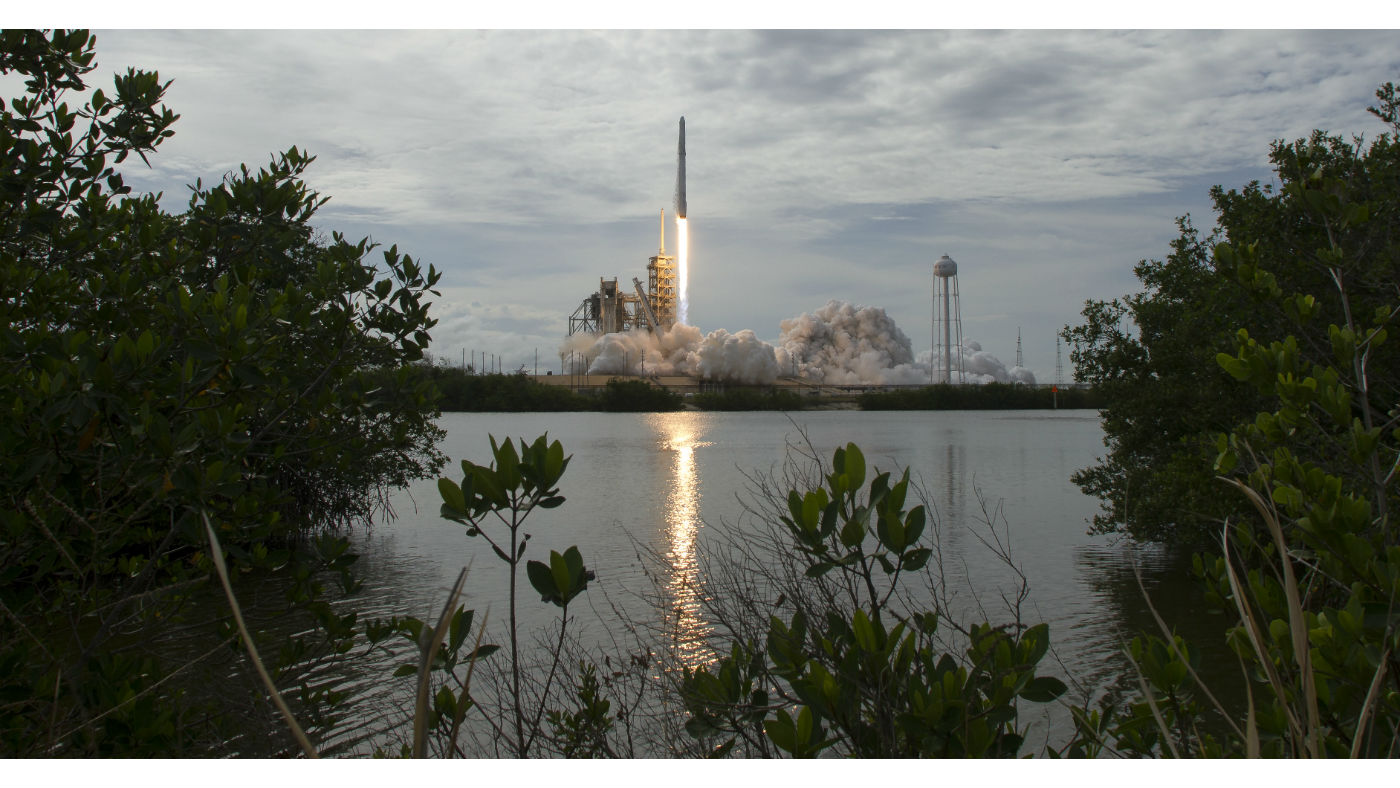SpaceX launches rocket capable of multiple flights
Upgraded craft 'capable of an indefinite number of flights with no service', says Elon Musk

A free daily email with the biggest news stories of the day – and the best features from TheWeek.com
You are now subscribed
Your newsletter sign-up was successful
Elon Musk's SpaceX rocket company has launched its second Falcon 9 rocket in 48 hours, taking another step towards renewable space flight.
The craft was sent into orbit to put up ten Iridium satellites to improve mobile phone coverage.
It was fitted with a "more durable set of grid fins" to stabilise the rocket "as it descends back to Earth", reports ArsTechnica.
The Week
Escape your echo chamber. Get the facts behind the news, plus analysis from multiple perspectives.

Sign up for The Week's Free Newsletters
From our morning news briefing to a weekly Good News Newsletter, get the best of The Week delivered directly to your inbox.
From our morning news briefing to a weekly Good News Newsletter, get the best of The Week delivered directly to your inbox.
Previous fins had "caught fire due to atmospheric heating", adds the site. The new versions "are designed for multiple re-uses as SpaceX seeks to more toward rapid reuse of its first stage booster".
It's a significant development into frequent and reusable space flight. Musk said the updated Falcon 9 "should be capable of an indefinite number of flights with no service".
The rocket launched on Sunday at the company's Vandenberg Air Force base in California, two days after a Falcon 9 last used in January went into orbit to deploy another batch of satellites, says TechCrunch.
Developing rockets that can be reused for multiple flights could reduce the cost of space travel by around 30 per cent, Gwynne Shotwell, president of SpaceX, told Wired.
A free daily email with the biggest news stories of the day – and the best features from TheWeek.com
The company sent its first used Falcon 9 into orbit in March, when the rocket successfully returned to orbit and landed on a floating platform in the Atlantic Ocean.
Previously, rockets could only be used on one mission as their booster jets and hulls would burn up on re-entry into the atmosphere.
One of the few exceptions was Nasa's space shuttle, although the BBC says "the complexities of servicing the shuttle system after every flight swamped any savings".
Musk's next milestone is to launch two rockets within 24 hours of each other.
-
 Quiz of The Week: 14 – 20 February
Quiz of The Week: 14 – 20 FebruaryQuiz Have you been paying attention to The Week’s news?
-
 The Week Unwrapped: Do the Freemasons have too much sway in the police force?
The Week Unwrapped: Do the Freemasons have too much sway in the police force?Podcast Plus, what does the growing popularity of prediction markets mean for the future? And why are UK film and TV workers struggling?
-
 Properties of the week: pretty thatched cottages
Properties of the week: pretty thatched cottagesThe Week Recommends Featuring homes in West Sussex, Dorset and Suffolk
-
 Are AI bots conspiring against us?
Are AI bots conspiring against us?Talking Point Moltbook, the AI social network where humans are banned, may be the tip of the iceberg
-
 Elon Musk’s pivot from Mars to the moon
Elon Musk’s pivot from Mars to the moonIn the Spotlight SpaceX shifts focus with IPO approaching
-
 Moltbook: the AI social media platform with no humans allowed
Moltbook: the AI social media platform with no humans allowedThe Explainer From ‘gripes’ about human programmers to creating new religions, the new AI-only network could bring us closer to the point of ‘singularity’
-
 Will regulators put a stop to Grok’s deepfake porn images of real people?
Will regulators put a stop to Grok’s deepfake porn images of real people?Today’s Big Question Users command AI chatbot to undress pictures of women and children
-
 Data centers could soon be orbiting in space
Data centers could soon be orbiting in spaceUnder the radar The AI revolution is going cosmic
-
 Inside a Black community’s fight against Elon Musk’s supercomputer
Inside a Black community’s fight against Elon Musk’s supercomputerUnder the radar Pollution from Colossal looms over a small Southern town, potentially exacerbating health concerns
-
 X update unveils foreign MAGA boosters
X update unveils foreign MAGA boostersSpeed Read The accounts were located in Russia and Nigeria, among other countries
-
 What's Linda Yaccarino's legacy? And what's next for X?
What's Linda Yaccarino's legacy? And what's next for X?Today's Big Question An 'uncertain future' in the age of TikTok